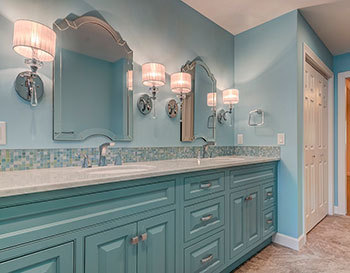Home additions and room extensions in Houston, TX can provide additional living space for homeowners. Taking on such a project requires planning, research, and budgeting to ensure the outcome meets expectations. This article will address what is needed to know about home additions and room extensions in Houston, TX.
The process of creating an addition or extension involves several steps including obtaining permits from the local government, selecting materials and supplies, hiring home contractors, making decisions regarding design features, and managing construction costs. Understanding these requirements before beginning the project allows for efficient completion within expected timelines and monetary constraints.
In order to make educated decisions throughout every stage of this undertaking, it is necessary to be aware of both legal and practical considerations that come with residential remodeling projects in Houston.

Definition And Types Of Home Additions
Home additions refer to the process of adding extra space onto an existing structure. The most common types of home additions include room extensions, second story or attic conversions, and basement remodels. Room extensions involve expanding one area of a house such as a kitchen or bedroom by building outwards from the original structure.
Second-story or attic conversions involve converting existing unused space into an office or living areas such as bedrooms or bathrooms. Finally, basement remodels involve renovating basements for additional living space by increasing headroom and installing windows.
The construction costs associated with these projects depend on several factors including size, complexity, materials used, labor costs and any necessary permits needed. It is also important to consider local zoning laws when planning a home addition in Houston, TX which may limit the type of project that can be undertaken in certain areas.
Furthermore, it is recommended to hire experienced contractors familiar with local regulations who are able to provide reliable estimates and manage the entire project efficiently.
Cost Considerations
When considering home additions and room extensions in Houston, TX, cost is an important factor to consider. Homeowners should be aware of the financial implications of any project undertaken before beginning construction. The costs associated with a home addition or extension may vary depending on its size, complexity, materials used and other factors.
Generally speaking, these projects can range anywhere from several thousand dollars for simple renovations up to hundreds of thousands for larger projects such as building an entire second story.
Before deciding on a particular option it is also important to understand which costs are fixed and those that are variable. Fixed expenses include permit fees and labor costs while some material costs may be flexible based on the type chosen by the homeowner.
Additionally, when hiring contractors homeowners should keep in mind that they will need to pay more if they require specialized services or unique features such as custom cabinets or fixtures. It is advised to get quotes from multiple companies prior to making a final decision so that homeowners have options and can make informed choices about their renovation budget.
Design Requirements
When considering a home addition or room extension in Houston, TX, the homeowner must consider design requirements. To begin with, the City of Houston requires that any new structure meets all zoning regulations and building codes. The owner should confirm with their local municipality to determine what is required for obtaining permits for construction projects.
Secondly, it is important to remember that any additions or extensions will have an effect on aesthetics such as color schemes and architectural styles. A professional architect can help homeowners select materials and colors to match existing structures while simultaneously creating a modern look.
Additionally, they may provide suggestions regarding how best to make use of space by adding features like outdoor patios or interior walls. Lastly, contractors need to ensure that safety standards are met when constructing an addition or extension.
It is essential to adhere to the city’s guidelines when selecting electrical fixtures and other components used during these projects. Adhering to these design requirements will ensure successful completion of a home addition or room extension project in Houston, TX.

Building Permits And Regulations
It is important to understand the building regulations and permits required for home additions and room extensions in Houston, TX. It is critical that homeowners familiarize themselves with these requirements before beginning a project as failure to comply can lead to costly fines or even the demolition of an illegal construction.
Local laws require all structures to meet certain safety standards which are enforced by the City of Houston Building Code Enforcement Department. In order to start a new construction project, owners must obtain a permit from this department. The application process includes submitting drawings of the proposed addition or extension along with other necessary documents such as zoning forms and survey plans. Additionally, applicants may need to provide additional paperwork depending on their specific needs. Once approved, contractors are responsible for adhering to local building codes when constructing the addition or extension.
Finding A Contractor In Houston, TX
When considering a home addition or room extension in Houston, TX, it is important to find an experienced contractor. A licensed professional should have the necessary knowledge and expertise to properly complete any project.
Before selecting a contractor, homeowners should research references and read reviews online. Furthermore, they should be sure to get several estimates from different contractors before making their decision.
It is also recommended that potential contractors are asked for proof of insurance and licensure. Making sure that the contractor has these documents will ensure that both parties are protected during the construction process.
Additionally, all contracts between homeowner and contractor must adhere to local building codes and regulations set by the state of Texas. By following these steps, homeowners can rest assured that their home additions or room extensions will be completed safely and correctly according to all applicable laws.
Construction Timeline
In Houston, TX the construction of a home addition or room extension can typically be completed in 8 to 10 weeks. The timeline includes factors such as receiving permits and approvals, demolition, preparation of the site, foundation work, framing, installation of mechanical systems (plumbing/HVAC), exterior finishes (brick/siding), interior finishes (drywall/flooring), trim carpentry and painting.
A major factor that affects this timeline is weather; delays may result from heavy rain or extreme heat.
The homeowner should be aware that it will take additional time for inspections by local authorities before occupancy can be approved. Inspections must pass all codes for safety and structural integrity requirements set out by the city’s Building Department. In some cases, further adjustments may need to be made after inspection to meet code requirements and gain approval before occupancy can occur.

Benefits Of Home Additions And Room Extensions
Home additions and room extensions in Houston, TX offer homeowners numerous benefits. These improvements can increase the value of a property while providing more usable space for activities such as entertaining guests or creating an extra bedroom.
Additionally, home additions and room extensions provide additional storage options to declutter homes that may have become cluttered over time due to lack of space. Furthermore, these projects often require minimal disruption during construction since they are usually built on existing foundations with fewer structural changes needed.
The overall cost-effectiveness of adding to existing structures should also be considered when weighing the pros and cons of making any home improvement project. The investment required is typically much lower than building from scratch, which requires significantly more costly materials and labor costs.
Moreover, because home additions and room extensions don’t necessitate significant foundation work or other major modifications, the process tends to move at a faster pace than traditional new builds. This makes them ideal for those who want quick results without sacrificing quality or safety standards.


